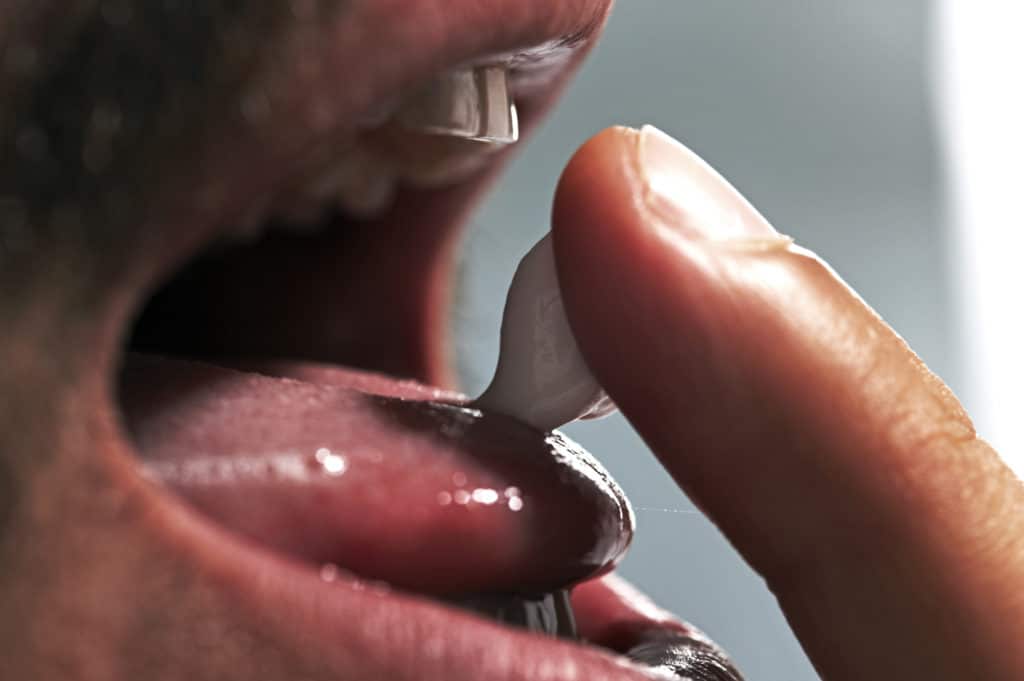 Our mouths produce saliva to chew and swallow and maintain healthy gums and teeth, but the amount and consistency of saliva can vary considerably, from clear and free-flowing to thick, stringy, sticky or foamy. If you find you regularly have foamy saliva, it’s probably your body's way of sharing that something else needs your attention.
Our mouths produce saliva to chew and swallow and maintain healthy gums and teeth, but the amount and consistency of saliva can vary considerably, from clear and free-flowing to thick, stringy, sticky or foamy. If you find you regularly have foamy saliva, it’s probably your body's way of sharing that something else needs your attention.
READ: Drooling While You Sleep: The Symptom You Should Pay Attention To
“Saliva is an important player in oral health, and the risk of infections in the mouth increases when the flow of saliva is somehow impacted,” said Dr. Christopher Cutler, chair of the Department of Periodontics at the Dental College of Georgia at Augusta University. “Saliva also contains properties that give clues to other things happening in the body, and these signs should never be ignored.”
What is Foamy Saliva?
Saliva that forms a white foam can be a sign of dry mouth. You might notice the foamy saliva at the corners of your mouth, as a coating on your tongue or elsewhere inside your mouth. Additionally, you may experience other symptoms of dry mouth, like a rough tongue, cracked lips or a dry, sticky or burning feeling.
Unhealthy Saliva
"If your saliva appears white and thick, the culprit could be oral candidiasis, also known as thrush," explains Cutler. "This yeast infection appears as white patches on the tongue and mouth, and is most commonly seen in adults who have diabetes since the sugars in the saliva may lead to yeast growth. If your spit is red after brushing, this could be a sign of bleeding gums or gingivitis, possibly even periodontitis that needs to be treated by a professional."
Healthy Saliva
Saliva in a healthy person consistently changes. For instance, you may have noticed your mouth turns dry when you're in a stressful situation, like before you have a job interview. Or you may have noticed that when you see, smell, or even think about delicious food, you salivate more. And the consistency of saliva can vary considerably, from clear and free-flowing to thick, stringy, sticky, or foamy. So there isn't exactly a "normal" consistency.
RELATED: Dry Mouth: What's Really Causing It and How to Treat It
However, if you have a healthy mouth, your saliva will keep all of the surfaces moist nearly all the time. A consistently low level of saliva can lead to problems like cavities and gum disease. It can make chewing and swallowing difficult, and a dry mouth could signify a more severe condition.
One thing to remember: According to the Centers for Disease Control and Prevention (CDC), 47.2 percent of adults over the age of 30 have some form of periodontal disease (or gum disease).
Preventing Foamy Saliva
Whatever the cause of your foamy saliva, practicing good oral hygiene is always important and could improve your saliva flow. Brush at least twice a day and clean between your teeth with interdental brushes or water flossers at least once a day. Consider using other helpful products like antimicrobial mouthrinses and tongue scrapers. And be sure to see your dental professional for regular appointments – not only to keep your teeth pearly white and bacteria-free but also to check for any possible health conditions.
READ THIS: Stick Out Your Tongue: Here's What Your Tongue Color Really Means
If you have saliva that's foamy regularly and it isn't resolved by staying hydrated, don't wait until your next cleaning to talk to your dental professional. Make an appointment right away and explain your symptoms. They can work with you to find out the cause, reduce your symptoms, and help you achieve a level of oral health you can smile about.








